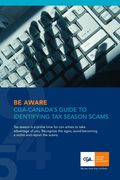Stealing a PIN code is as easy as 1234
You work hard for your money.
So why put your finances at risk with a personal identification number (PIN) that's as easy as 1234?
A study by DataGenetics revealed that people are opening themselves up to identity theft and financial fraud by selecting four-digit PINs that are easy to crack.
When thinking of a four-digit password, many people opt for something that is simple and easy to remember such as a child's birth date, an anniversary or the year they were born.
However, there are over 10,000 possible combinations the digits 0 to 9 can be arranged to create a four-digit PIN code, according to the research.




